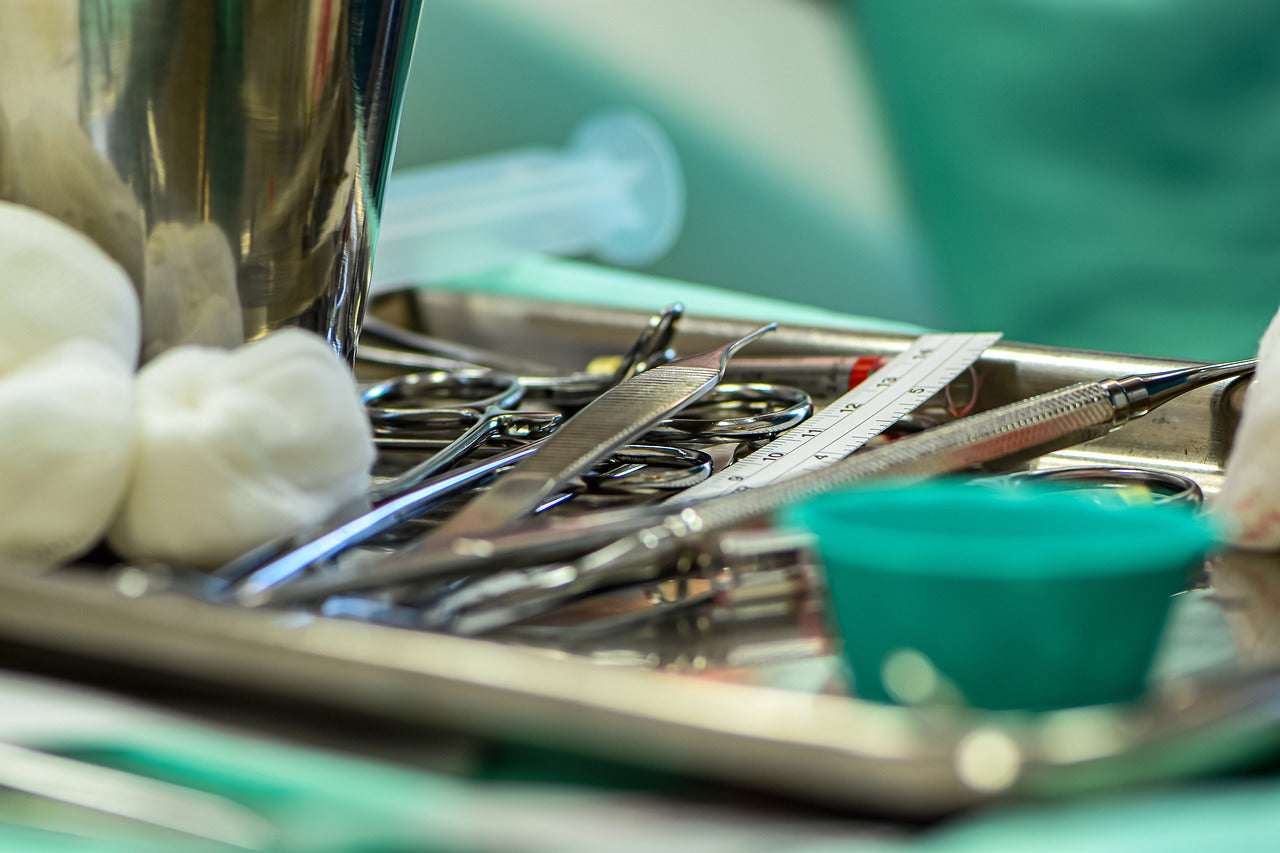

· By Trevor Horne
Enhancing Surgical Precision with High-Quality Hand Instruments
In the world of surgery, the quality of the outcome is often as good as the tools used. We understand the critical role that hand instruments play in surgical precision, shaping the success of every operation. In every medical procedure, from complex surgeries to routine check-ups, the instruments we choose are extensions of our own skills—they must perform with flawless reliability.
The accuracy of each incision and the effectiveness of every procedure hinge significantly on the precision tools wielded by surgeons. High-quality hand instruments are not just tools; they're integral components of the surgical process, ensuring that every movement is precise and every outcome is as expected. By focusing on superior craftsmanship and ergonomic design, these instruments can dramatically enhance the surgical experience, reducing fatigue and minimizing errors.
It is essential, therefore, for medical professionals to understand not only how these instruments impact their work but also what characteristics define the best in the field. Knowledge of how sophisticated hand instruments contribute to successful surgeries ensures that medical practitioners can make informed decisions about the tools they entrust with their patients' care. This understanding is fundamental as we continue to push the boundaries of what is possible in medicine, with reliability and precision at the forefront.
Understanding the Role of Hand Instruments in Surgical Accuracy
The precision of every surgical procedure is heavily reliant on the quality and functionality of the hand instruments used. In our experiences across various surgical fields—from dental to veterinary practices—we've observed the direct impact that superior hand instruments have on outcomes. These tools are the surgeons' primary interface with their work, making their design, balance, and sharpness pivotal for precise maneuvers.
Hand instruments like surgical scissors, scalpels, forceps, and clamps are extensions of the surgeon's hands and, thus, must enhance rather than hinder performance. The difference in surgical outcomes can often be traced back to the quality of these instruments. When tools are ergonomically designed to fit comfortably in the surgeon's hand, they reduce fatigue and improve control during delicate procedures. This not only aids in achieving surgical precision but also minimizes the risk of errors, ensuring patient safety and optimal results.
Key Traits of High-Quality Hand Instruments for Surgery
When selecting hand instruments for surgery, several key traits must be considered to ensure they meet the rigorous demands of modern medical procedures. Durability, precision, ergonomics, and material quality stand out as the most critical aspects. Instruments crafted from high-grade stainless steel or titanium are not only more durable but also offer superior performance and reliability over extended use.
The design of these instruments is just as vital; they should be precision-engineered to provide optimal control and accuracy, which are crucial for surgeries requiring meticulous detail. Additionally, the handles should be designed to prevent slippage and reduce the physical strain on the surgeon during long procedures. High-quality instruments also feature designs that are easy to clean and sterilize, preventing the risk of cross-contamination and infection. These characteristics are essential, as they directly impact the functionality and safety of the tools, which, in turn, influence the success of surgical operations.
Enhancing Surgical Outcomes with the Right Instrument Selection
Selecting the right hand instruments is not just a matter of preference but a strategic decision that significantly impacts surgical outcomes. The preciseness of every surgical action depends heavily on the appropriateness and quality of the instruments used. For intricate procedures, especially in fields like dentistry, cosmetic surgery, and microsurgery, the precision of hand instruments can dictate the success of operations and the speed of recovery for patients.
We understand that each specialty has unique demands; thus, providing a wide range of specialized tools that cater specifically to these needs is crucial. For instance, microsurgical tools designed for ophthalmologists are vastly different from the robust instruments used in orthopedic surgeries. By matching the right tool to the right procedure, we ensure that surgeons are equipped to perform at their best, minimizing tissue damage and improving clinical outcomes.
Maintenance and Care Tips for Surgical Hand Instruments
The longevity and performance of surgical hand instruments greatly depend on proper care and maintenance. Regular and meticulous maintenance not only preserves the functional integrity of these tools but also ensures patient safety by preventing infections. Hence, establishing a consistent protocol for cleaning, sterilizing, and storing these instruments is fundamental in any healthcare setting.
We recommend that all instruments and surgical blades be thoroughly cleaned and inspected for damage after every use. Sterilization should be performed using methods appropriate to the material and construction of each instrument to avoid degradation. Furthermore, proper storage is essential to prevent environmental damage, including corrosion and contamination. Following these guidelines not only extends the life of the instruments but also ensures that they remain ready for use in optimal condition, thus supporting the overarching goal of delivering superior patient care.
Conclusion
As we continue to support healthcare professionals in enhancing their surgical capabilities, we encourage the adoption of advanced surgical tools and maintenance practices that align with the highest standards of patient care. At ProNorth Medical, we are committed to providing high-quality surgical equipment that helps medical professionals achieve the best outcomes for their patients. For more information on how our products can enhance your surgical precision, explore our range of surgery equipment and hand instruments tailored to meet the diverse needs of modern surgery.- Choosing a selection results in a full page refresh.
- Press the space key then arrow keys to make a selection.
Your cart -
Your cart is currently empty.
